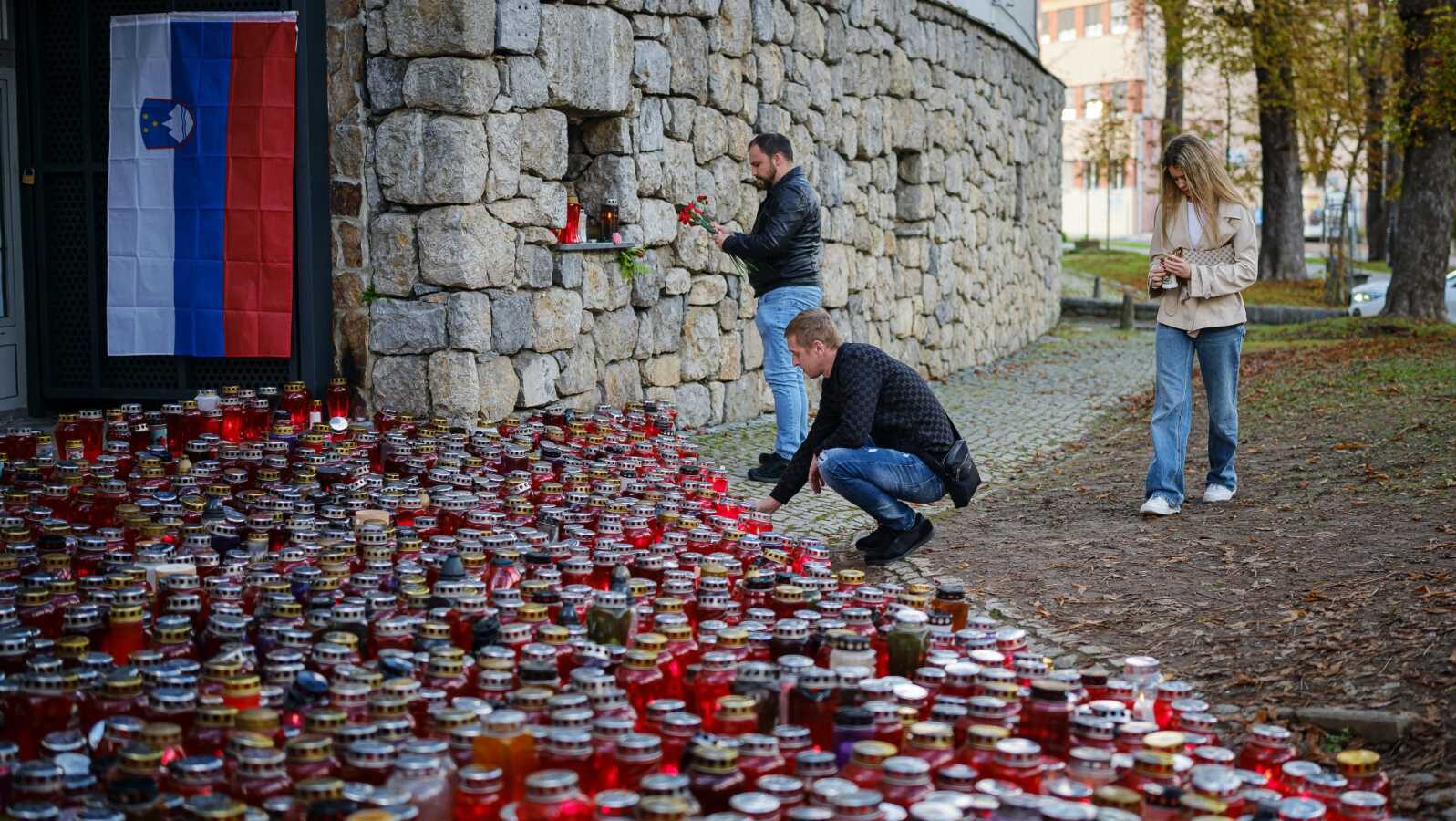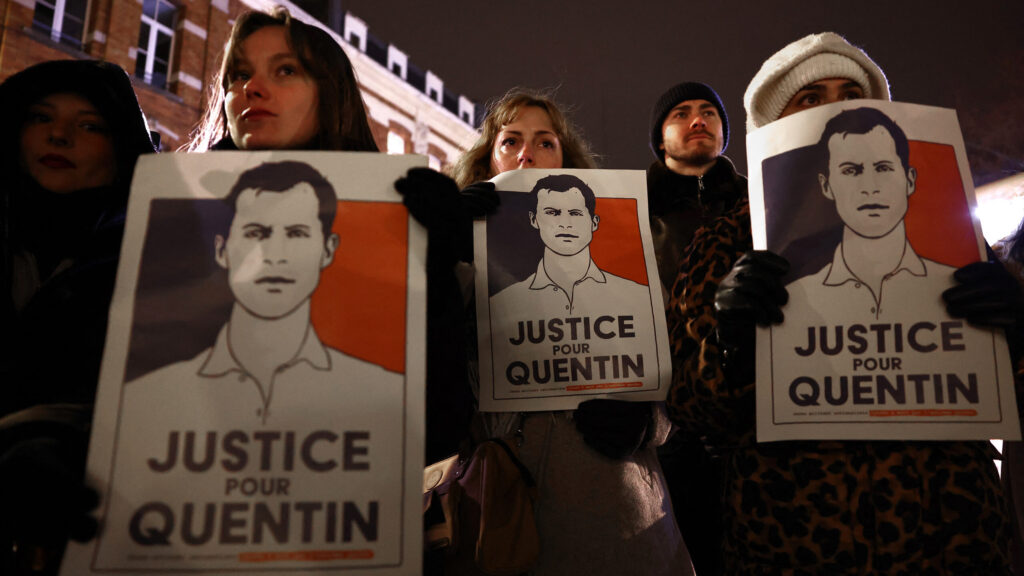Slovenia is under fire from liberal progressives, including human rights NGOs, Western media, and even Brussels, after the parliament approved the so-called Šutar Law on Monday, granting police expanded powers to operate in designated high-risk areas. The government proposed the measure following the fatal attack in Novo Mesto in which 48-year-old Aleš Šutar was killed.
While the bill does not explicitly name any ethnic minority, the timing—introduced shortly after a high-profile incident involving a Roma suspect—and the allegation that security-risk zones overlap with Roma settlements have raised strong concerns that the law may collectively target the Roma community, critics argue.
Minority rights NGO Roma Foundation for Europe appealed to the European Commission, warning that the law institutionalizes a form of collective securitization of a minority population, undermining the principle of individual criminal responsibility. ‘This case is not only about Slovenia. It is about whether the European Union can uphold internally the same principles it demands abroad,’ the organization’s vice president, Mersul Haliti, said on Wednesday.
Ahead of the vote, Amnesty International’s Deputy Director for Research in Europe Esther Major stressed that the ‘draconian bill risks stripping all people in Slovenia of an array of vital human rights protections, as well as posing a specific risk to a Roma population that already faces daily discrimination, exclusion, and poverty.’
Responding to the concerns, the European Commission urged Slovenia to ensure that the newly adopted emergency law on public safety does not disproportionately affect any community. Brussels added that it would ‘examine’ the legislation after the President of Slovenia signs it into law:
‘We encourage Slovenia to ensure that the implementation of the so-called Šutar law does not disproportionately affect any of the communities. It should also not create vulnerabilities for communities that are already at risk. Of course, it is important to address security and maintain public order, but the measures must be fully in line with EU law and fundamental rights.’
Progressive Friendly-Fire
What is particularly interesting is that Slovenia’s government is far from the usual right-wing cabinets these NGOs and Brussels typically accuse of rights violations. Led by Robert Golob and his Freedom Movement, joined by the Left and the Social Democrats, the governing coalition is considered pro-European, socially liberal, and centre-left. The government stated that the Šutar Law concerns crime, not ethnicity, emphasizing the need to act swiftly on weapons, violent offences, and minors under protection. They characterize it as preventive rather than punitive, aiming to speed up intervention rather than weaken rights.
On the night of 25 October 2025, in the town of Novo Mesto in south-eastern Slovenia, 48-year-old local man Aleš Šutar rushed to assist his son after the latter reported being threatened outside the nightclub LokalPatriot. Moments later, Šutar was fatally assaulted by a 21-year-old man from a Roma community, who struck him with a severe blow. Šutar died the following day in hospital. The incident sparked large protests in Novo Mesto and triggered the resignation of two government ministers: Minister of Interior Boštjan Poklukar and Minister of Justice Andreja Katič.
EuroWatcher – News for you on X (formerly Twitter): “🇸🇮 – Slovenia’s Interior Minister Boštjan Poklukar and Justice Minister Andreja Katič resigned after 48 year old Aleš Šutar was fatally beaten outside a Novo Mesto nightclub on 25 October by a 21 year old Roma suspect. Prime Minister Robert Golob accepted the resignations,… pic.twitter.com/VuQjaGCXuw / X”
🇸🇮 – Slovenia’s Interior Minister Boštjan Poklukar and Justice Minister Andreja Katič resigned after 48 year old Aleš Šutar was fatally beaten outside a Novo Mesto nightclub on 25 October by a 21 year old Roma suspect. Prime Minister Robert Golob accepted the resignations,… pic.twitter.com/VuQjaGCXuw
Besides establishing high-security-risk areas, the law introduces sweeping changes across criminal, procedural, social, and municipal legislation: it authorizes police to enter homes and inspect vehicles without a court warrant in designated risk areas under urgent circumstances, and to deploy surveillance tools such as drone reconnaissance and automatic licence-plate recognition.
It empowers the military to assist police in domestic operations, links parts of municipal and welfare funding to public-safety measures, and tightens social-welfare eligibility by enabling sanctions or benefit reductions for repeated minor offences or failure to cooperate with community-service schemes.
All-European Challenge of Roma Integration
While Slovenian authorities do not collect ethnicity-specific crime data, studies indicate that in 2024 crime rates increased in areas with significant Roma populations, specifically citing the municipalities of Kočevje and Ribnica. The national Ombudsman notes that approximately 12,000 Roma live in Slovenia, a country of 2.13 million.
The situation in Slovenia reflects wider European challenges related to Roma integration. Despite their centuries-long presence on the continent—genetic and historical research suggests their ancestors left the Indian subcontinent roughly 1,000–1,500 years ago, reaching the Balkans between the 9th and 12th centuries—their integration across Europe remains inconsistent. Millions of Roma continue to face poverty and gaps in education and employment. The Council of Europe and the European Commission have developed coordinated frameworks to promote access to education, employment, health, and housing, but overall progress has been limited and uneven.
‘The situation in Slovenia reflects wider European challenges related to Roma integration’
Hungary also has a significant Roma population, with official data and estimates placing the figure between 300,000 and 800,000 (up to 8 per cent of the population). The Hungarian government has implemented the National Strategy for Roma Integration (2021–2030), aligned with EU-level frameworks aimed at improving education, employment, housing, and healthcare. Government Commissioner for Roma Relations at the Ministry of Interior Attila Sztojka said in 2024 that an institutionalized structure has been established over the past 14 years providing individuals with opportunities for advancement, already yielding tangible results. The government’s objective is for the Roma community in Hungary to actively participate in and contribute to the process of becoming part of the middle class. Despite that, there is still significant work to do in the area.
The example of the Roma population illustrates how difficult it is to integrate a minority with very different cultural and social traditions into societies built on Christianity and Western legal systems. It serves as a clear warning for those advocating continued mass migration of mainly Muslim immigrants, arguing that their integration would be successful and in the interest of European societies.
Related articles:







